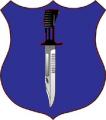I think max161's post was excellent and appropriate to this discussion. When you add comments to this discussion comments from the on going discussions on "how to win" focused on Bob Jone's article on "Population Focused Engagement" and discussions on how to address the problems in Afghanistan, I think we have developed a considerable amount of information, knowledge and ideas that can serve as a basis to seriously mature our initial ideas on how to improve our capacity to equip, train, advise, and assist partner nation security forces.Posted by max161, What we need to be able to do is properly task organize to meet mission requirements. We need to conduct the proper and thorough mission assessment (which includes most importantly the requirements of the host nation) and then apply the right force (or combination of forces to accomplish the mission) Unfortunately this means being able to find the right people with the right skill sets and that could mean talking people from exist modular organizations.
What should be considered when determining the force is the right combination of GPF and SOF. If we could break the rice bowls and understand what is required for the mission then we could properly task organize to accomplish the mission. We need a combination a great GPF and SOF and not one or the other. And as we look to the future I think we need to strongly consider that we will face the Hybrid Threats that Frank Hoffman has articulated so well. And to defend against those threats we will need a highly capable, agile and flexible combat force combined with the ability drawn from that force to advise and assist friends, partners, and allies against, subversion, terrorism, insurgency, lawlessness as well as external threats to a nation's sovereignty.
One concern I have, and obviously it won't be addressed to any great length on the SWJ council, but where are the policy objectives, strategy, and campaign plans? If we simply (I know it isn't simple) develop a capacity to increase and improve our ability to build partner nation capacity, then we'll have a tool everyone wants to use because they'll think it is "the answer" to the problems we face, but we know the problems are much more complex than a lack of security forces capacity. As long as we keep in mind that our ability to develop better host nation security forces is inadequate to achieve "victory" (achieve policy objectives) without realistic policy objectives, strategies and campaign plans, then we're on track. If we think we can fix the "problem" by simply improving our capacity to equip, train, and advise friendly partner nation security forces, then I think we're far from solving the bigger problems at hand.
Ken will scold me, but this is a Whole of Government problem, and it is a multinational problem/challenge. Department of Defense will get out in front of everyone else because we're a proactive organization that is less bureaucratic than the other government agencies (scary thought). In my opinion designating and manning a Combat Advisor Bde is re-designging the Army, and that is a major step, one that should not be taken until we determine (to the degree possible) our requirements based on policy. I stand by my argument that what we need in the short term is to resurrect something along the lines of the Institute of Military Assistance (IMA) to prepare hand selected officers and NCOs who been selected to serve as advisors for their duties. That is needed now, we already have a large pool of talented Officers and NCOs, they just need a top notch advisor school (center) where they can learn about where they're going, how the culture and other factors will impact their mission, suggestions on how to deal with it, etc. This Advisor center (can be joint, or one established for each service) can be manned by a combination of Active Duty and DoD civilians to serve as instructors and mentors and to provide a reach back facility to help those advisors forward. Imagine the goodness that could come from an official community of interest (WOG, international, academia, etc.) that an advisor could tap into for help. We would actually catch up to the information age. While the SWJ serves as a great model, I think we would have to narrow the participation down to trusted agents (in most cases).
There are other ways to address this problem beyond building an Advisory Bde. In the long run, if we still think we need to go that way, we can readdress it.








 "A Sherman can give you a very nice... edge."- Oddball,
"A Sherman can give you a very nice... edge."- Oddball, 


 ) has placed me in considering similar problems in different places at the same time. It is hard for me to consider any one of them in isolation. Once you do the math, and realize that everybody assumes they get everything they are asking for, you quickly run into a physics problem.
) has placed me in considering similar problems in different places at the same time. It is hard for me to consider any one of them in isolation. Once you do the math, and realize that everybody assumes they get everything they are asking for, you quickly run into a physics problem.  but which are emphasized to those who see them differently), will reduce risk, and will facilitate achieving unity of effort with our range of partners.
but which are emphasized to those who see them differently), will reduce risk, and will facilitate achieving unity of effort with our range of partners. ). Two very different jobs requiring different skill sets.
). Two very different jobs requiring different skill sets.


Bookmarks